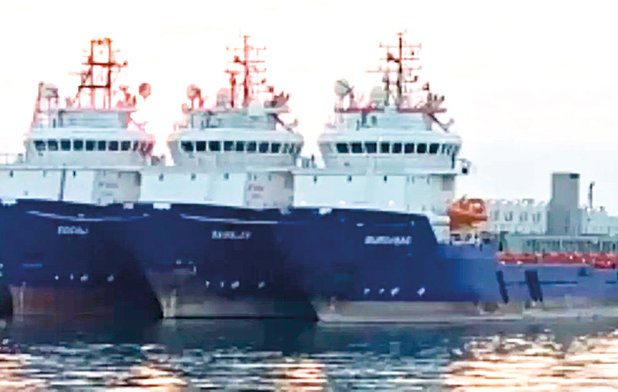Six Sri Lankan sea marshals remain detained in Eritrea nearly a year after their arrest, despite ongoing diplomatic efforts by Sri Lanka to secure their release. The men, all former military personnel employed as maritime security guards, were taken into custody on November 7, 2024, while serving aboard three Azerbaijan-flagged tugboats operated by Caspian Marine Service B.V. The vessels reportedly entered Eritrean waters after being diverted due to adverse weather conditions. Although Eritrea released and repatriated the 18 Azerbaijani crew members in March 2025, the Sri Lankan nationals have yet to be freed, raising concerns over the prolonged detention and lack of resolution.
Sri Lanka, which does not maintain a diplomatic mission in Eritrea, has been navigating a complex diplomatic landscape to advocate for the release of its citizens. The government has relied on indirect channels and regional allies to engage Eritrean authorities, making repeated appeals and initiating discussions through third-party intermediaries. Despite these efforts, Eritrea has not responded favorably, and the situation remains unresolved. The families of the detained sea marshals continue to face emotional and financial hardship, with little clarity on the timeline or outcome of the negotiations.
The case underscores the challenges faced by nations without direct diplomatic representation in managing consular crises abroad. It also highlights the risks associated with maritime security operations in politically sensitive regions, where jurisdictional disputes and unpredictable enforcement can lead to prolonged detentions. The incident has prompted calls for stronger international protocols to safeguard civilian maritime personnel and ensure fair treatment under international law.
As diplomatic efforts persist, Sri Lanka remains committed to securing the safe return of its citizens. The government has urged Eritrea to act in the spirit of humanitarian cooperation and regional goodwill, emphasizing the importance of resolving the matter through dialogue and mutual respect. The continued detention of the sea marshals serves as a reminder of the human cost of geopolitical friction and the urgent need for transparent, rules-based engagement in international maritime affairs.
